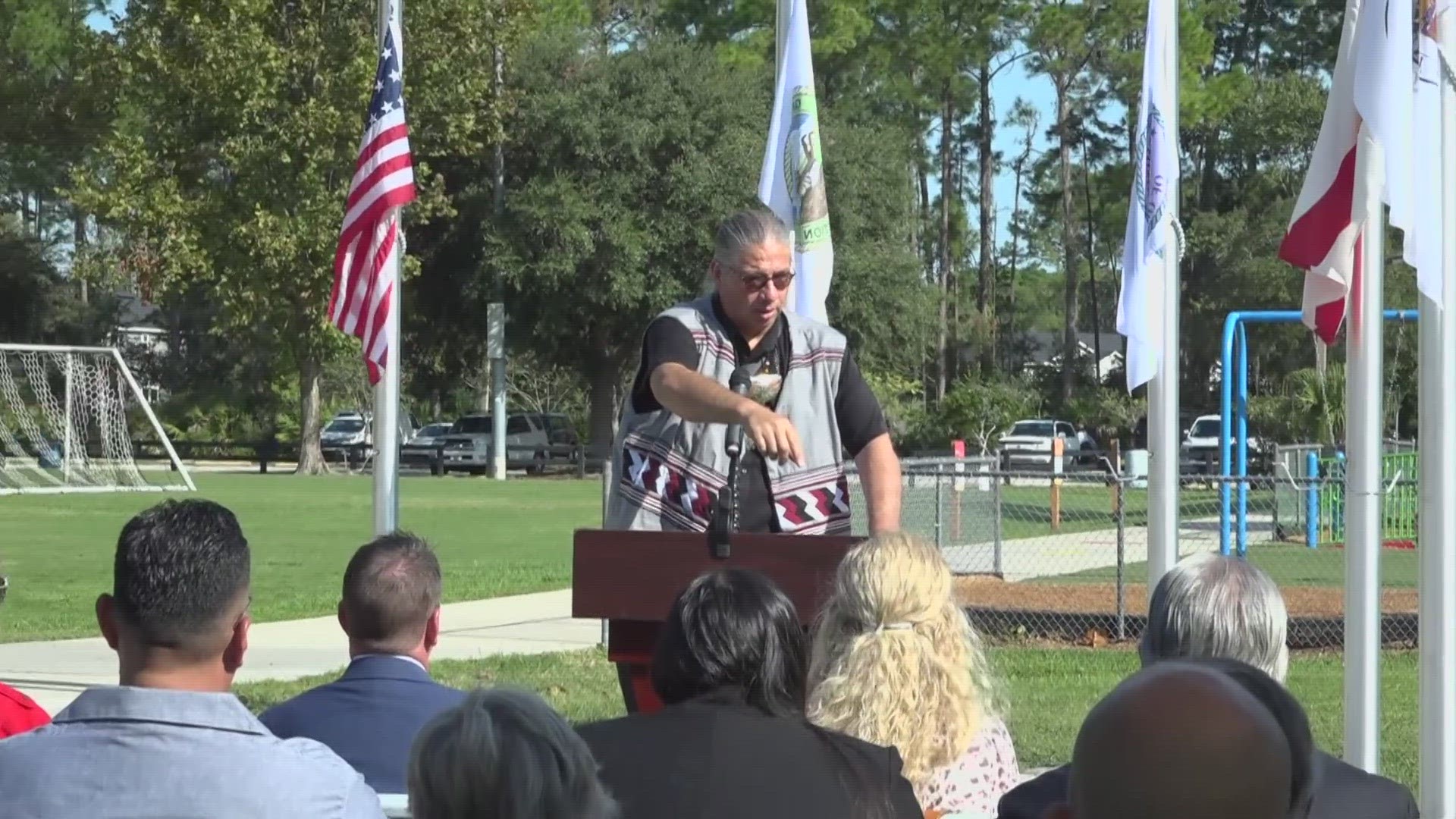ST. AUGUSTINE, Fla. — It has been 200 years since the Treaty of Moultrie Creek was signed. For the first time in centuries, indigenous nations that were affected by the treaty, visited St. Augustine's Treaty Park for a flag raising ceremony with St. Johns County officials. Tribal leaders say it's not a day of celebration but commemorating what their ancestors experienced.
Before it was known as Treaty Park, the land was home to David Hill's ancestors. Hill represents the Muscogee (Creek) Nation and was one of the guest speakers at Monday's event.
"This means a lot coming back to our ancestral homelands," Hill said.
There are four flags that stand over Treaty Park. Two of them represent the Muscogee (Creek) Nation and the Oklahoma Seminole Tribe. To Hill, those flags tell a story that is not told much.
There was a time when Native Americans relinquished their land to the U.S. government, otherwise known as the treaty of Moultrie Creek. Muscogean speakers and Seminole villages were relocated to a four million acre reservation in Central Florida.
History shows the government took advantage of the land native communities left behind. To Raelynn Butler, a Muscogee (Creek) Nation tribeswoman, the treat isolated families 'off of the coast.'
"[The treaty was] preventing them to trade and really making them be in one location," Butler explained. "To see these flags in the state shows respect and honor to our tribe and it makes us proud that we can be remembered in place that we loved and lived."
"You look around and see how beautiful this place is. You go to Georgia, Alabama, our original homeland. We always get questioned 'Can't believe y'all left'," Hill said. "Well weren't asked to leave."
History shows the treaty stipulated that white settlers could build roads and go after runaway slaves within the reservation. The government was slow getting the tribal communities the funding it needed.
Tribal leaders hope the flags will serve as a reminder to people there are native communities that still call Florida home.

